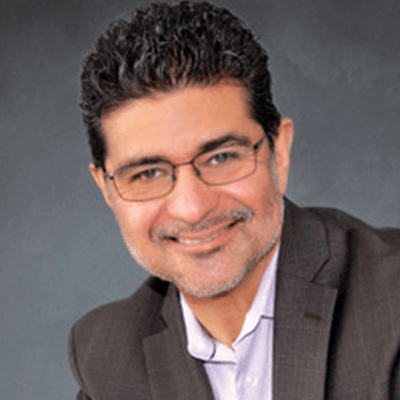How to Infuse Coaching Into Your Leadership Culture
Organizations are evolving, fueled by bottom-up pressure from their people and top-down market forces. What’s needed from leaders, individual contributors, and collaborative teams is also changing. Managing “work product” is no longer enough. Building a culture that values coaching as a leadership tool is increasingly critical to creating sustained growth for our organizations. Coaching is a framework for sustained attention to the people, relationships, and processes that fuel our workplaces. Harnessing its power in your leadership culture impacts your bottom line and leads to:
- Higher employee engagement
- Deeper employee relationships
- More nimble leadership development
- Better functioning teams
- Yes, rising productivity, too!
As you start to build or reinforce a coaching culture in your organization, here are some things to consider.
What is a Coach-Manager?
Managers oversee the work done against a particular objective. But, all managers of teams know that it’s more than simply checking off the work product against a list of to-dos. The human beings moving the ball forward are a huge variable, a factor with far-reaching consequences. Managers are also in the people development business, which means that at times you are also a teacher and a mentor.

Coaching aims to produce results for specific problems or challenges, and it’s a sustained effort over time. A coach-manager balances the delegating and overseeing of the work product with an approach that includes asking more questions, facilitating, and partnering towards the bigger picture outcome.
What are Coachable Moments?
The coaching skillset is just one piece of the leadership puzzle. It’s another tool to add to your leadership toolbox. Building an effective coaching culture is not about changing the way your leaders lead, it’s about expanding their skill set to incorporate coaching as part of their natural leadership style.
The coach-manager will focus initially on practicing in structured formats such as performance reviews, conversations about an employee’s career or development plans, and scheduled individual or team meetings. Ultimately, the goal is that the coaching mentality becomes an innate part of managing others. The skills of coaching manifest with peer relationships and with external organization partners, too. Understanding when to deploy coaching over directing or supporting is more important than a specific list of moments when you’ll don your coaching hat.
Learn the Language of Coaching
The language of coaching is more than simply a set of terms. Coaching involves honing soft skills such as listening, empathy, and intuition. Learning how to communicate with a coaching mentality enables leaders to invite more engagement into their conversations with peers and direct reports. It’s also about conversation structures and approaches.
A coaching culture will manifest in your leaders as:
- Productive, safe conversations learning how to be a better leader
- Commitment to cultivating more resourceful + solutions-oriented teams
- Improved relationships through active listening + building empathy
- Clearly defined goals, values, priorities + actions that bring results
- Communicating with a new awareness of the power of words
- Mindful presence in conversations to encourage collaboration
Embrace the Practice + Action Cycle
Like every person and every organizational effort, your culture is a work in progress. Perfect is unattainable; continuous improvement is the goal. Improvement happens in environments that embrace feedback and practice and put both into action.
We like to reinforce the concept of feedforward. Feedback implies a conversation and focus around something that has already happened, something that is in the past. A culture of feedforward embraces the idea of productive conversations around improving not just the skills of production as they’ve already happened, but how we relate, collaborate, and direct other humans in our collective work at all times and in all facets of our work lives.
Outcomes Through Accountability + Peer Support
Remember that outcome bit? Building up your coaching skills as a manager is not simply an exercise in how to build better relationships, though that’s an important part. Coaching skills are also about reaching your KPIs. Success requires a sustained commitment to building toward the results you, and your organization, seek.
Accountability can elicit negative reactions because the very word in many office cultures implies a sort of scorekeeping. We’re not talking about lording deadlines over your team or finding someone to blame. When structured in a coaching mentality, accountability dignifies the work you do together towards a common goal. Our belief is that peer networks at work can reinforce accountability through support and the focus on achievements.
Coaching Cultures Can Be Built
Coach-leaders inspire and harness the people they lead, in ways that are meaningful, productive, sustainable, and get results for everyone involved. As the company reaches its OKRs, managers enjoy the impact of their leadership through the participation and growth of their people. Individual contributors will feel their work matters and that they are growing into future leaders.
This culture change won’t happen overnight. Working with a people development partner like The Creative Executive is a great place to start (shameless plug!). To make the effort truly sustainable over the long haul, your organization should consider multiple modalities for training and reinforcing your coaching culture. External resources like The Creative Executive can be combined with in-house coaching practitioners, and leaders trained in coaching principles. Our corporate clients contend with thorny challenges as they scale from small to big. Through executive and team coaching and organization-wide leadership development programs, we provide the space and structure for exploration, and we put accountability mechanisms in place to help our clients tackle those challenges.
If The Creative Executive team can help you build a coaching culture at your organization, drop us a line.

About The Author
As a certified professional executive coach, Guillermo Mendoza turns managers into leaders and works with organizations to create cultures built around coaching and mentorship. Read Guillermo’s full bio.
Excerpts of this blog were adapted from Guillermo’s blog on Impact Coaching Solutions.